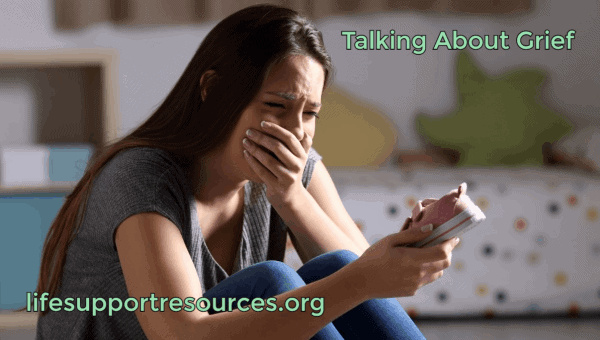Table of Contents
Before You Speak Out
Talking about grief is tricky. When someone loses a loved one, many of us want to help and be supportive. But, in our desire to act we tend to say to them the first thing that comes to our minds:
“I can’t imagine how you feel.”
“How are you?”
“He/she’s in a better place.”
These are some examples of things that are commonly said to a person in grief that both survivors and mental health professionals have said are the wrong things to say. We may have the best of intentions when we want to say something to someone in grief, but if we are not careful, we can actually do more damage than good.
Here’s what they might be thinking
“I can’t imagine how you feel.” – “Duh! Of course you can’t imagine how I feel!”
How are you?” – “How do you think I am?, I’m shattered! I don’t even know how to feel this and you want me to put it onto words?”
” “He/she’s in a better place.” “Is he/she? How do you know? Also, I don’t want them in a better place. I want them here where they belong.”
The Person in Grief Will Never be the Same
Before speaking to someone in grief, keep these things in mind:
A traumatic experience or the sudden loss of a loved one will have life-long impact on a survivor. It’s fair to say that most of us expect everyone to grieve over the loss of a loved one, but many are not informed about the importance of long-term after-care.
The friends of a survivor might expect him/her to get on with life as usual after a certain amount of time, believing the adage that time heals all wounds.
In an interview for LifeSupport’s Worst Loss series, Beth Chaya talked about losing her son, John, and the months afterwards.
“A lot of times people would say, ‘It’s been six months, are you over it yet?’ We are still dealing with the ‘why’ question 19 years later.”
Love is an Act, Not a Word
A better approach to someone grieving is a gesture, a gift or act of service…it doesn’t have to be something elaborate, time consuming or expensive.
After the funeral for Beth’s son, some people just went back to their normal lives.
“It was so empty and that is why I was so grateful to the people who said, ‘I’m going to show up for the next couple of months and we’re going to do this.”
Beth said someone would come and mow her yard or take her kids to McDonald’s. Another one would just show up at her house and ask her to go out for coffee. Others would send cards on the anniversary of her son’s death.
The More You Say, the Worse it’s Going to Be
If you don’t know exactly what to say to someone in grief, then it would be best not to say anything at all. The chances are the more words you say to someone in grief, the better chance you might say something hurtful.
Here are the three best things you can do for someone in grief:
- Be present – Just sitting with someone in a room, offering your presence or help with anything they might need, is huge for survivors. They want to know people care enough to give their time to be with them, not to talk necessarily, but just to be there for them.
- If you haven’t been through it, just listen – Unless you have also experienced the same kind of loss the survivor experienced, you cannot really understand what they are feeling. If that is the case, just listen to them, let them say whatever they need to say. This does not mean you have to provide an answer or response.
- Let them grieve – Everyone grieves differently. It is not wrong to grieve and we can never expect anyone to “get over it” at any time.
Keeping these things in mind, leaders and congregants will be able to respond to someone grieving the right way without causing more damage or pain.
The LifeSupport Worst Loss Curriculum is an award-winning video and discussion group resource designed to help anyone be better prepared to come alongside a family member, friend, or a church member who has suffered the trauma of sudden loss. This curriculum includes 6 short films that present real people sharing their stories of loss.

